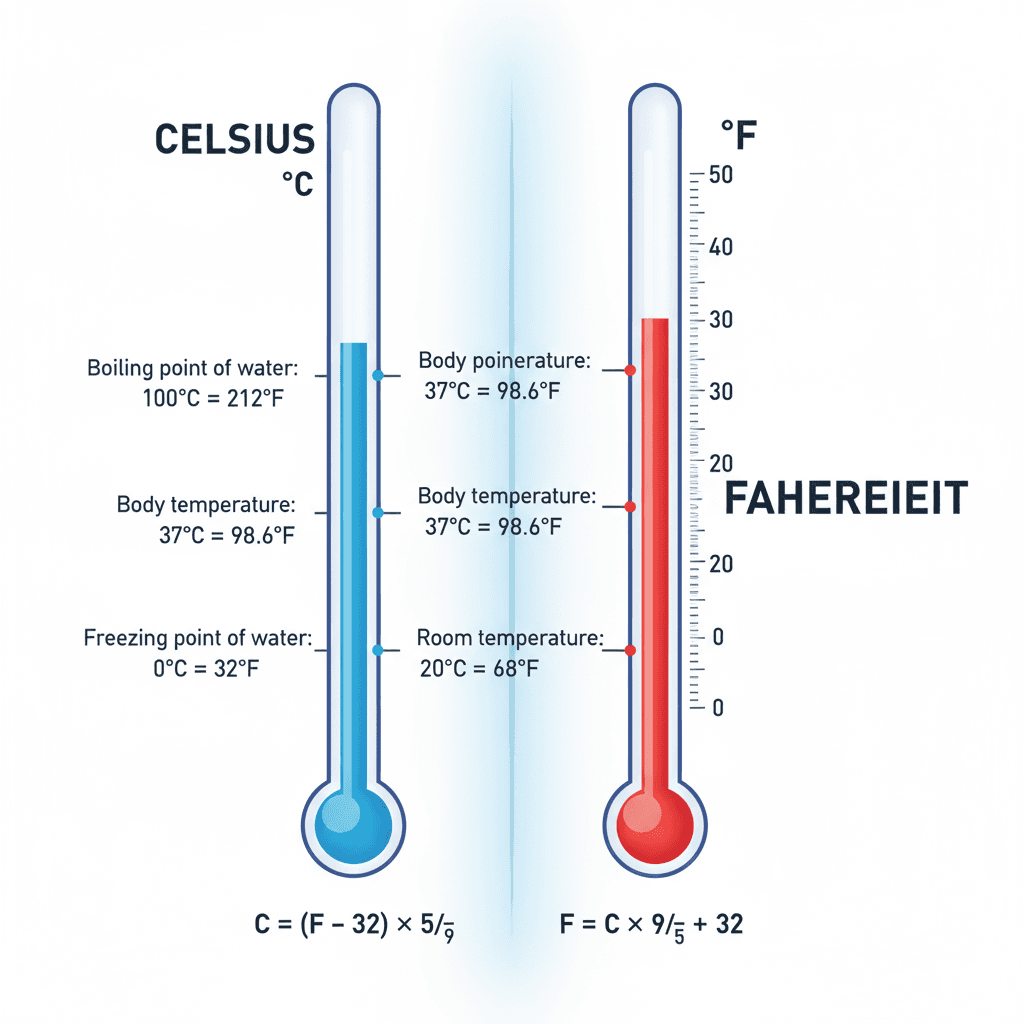From Chilly to Sizzling: Understanding Celsius & Fahrenheit!
Making sense of the world's two major temperature scales.
Have you ever found the perfect recipe online, only to realize the oven temperature is in Celsius when you're used to Fahrenheit? Or maybe you've been planning a trip and the weather forecast for your destination looks like a random number. "Is 28 degrees hot or cold?!"
If you've ever been stumped by temperature conversions, you're in the right place! We believe that understanding the difference between Celsius and Fahrenheit should be easy. Forget the mental math and confusing formulas; this post will make it all clear. Let's get started!
Above, you can see a thermometer displaying both scales side-by-side. This simple comparison is the key to unlocking temperature fluency. It visually bridges the gap between the numbers you know and the ones you don't, helping you instantly gauge whether to pack a jacket or your sunglasses.
A Tale of Two Scales
So, why do we have two different ways to measure temperature? It all comes down to history. The Fahrenheit scale was invented by physicist Daniel Gabriel Fahrenheit in the early 1700s. He based his scale on what he could reliably reproduce in his lab, like the freezing point of brine.
A few decades later, Swedish astronomer Anders Celsius proposed his own scale. The Celsius scale, originally called centigrade, was much simpler: 0° for the freezing point of water and 100° for its boiling point. Because of this logical simplicity, it was widely adopted by the scientific community and most countries around the world.
Today, the Fahrenheit scale is primarily used in the United States and a few other territories, while the rest of the world predominantly uses Celsius. Knowing the story behind them makes it easier to remember which is which!
You´re a Temperature Expert!
And there you have it! No more temperature confusion. We hope this simple explanation helps you on your travels, in the kitchen, and wherever else you might encounter a mysterious temperature. Stay cool (or warm)!


